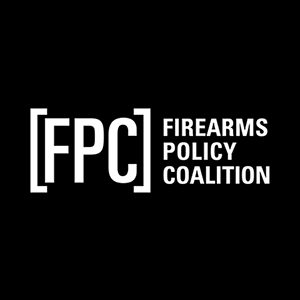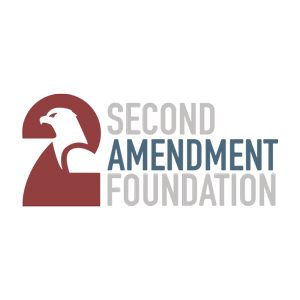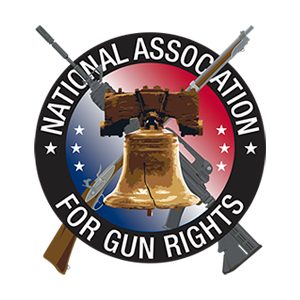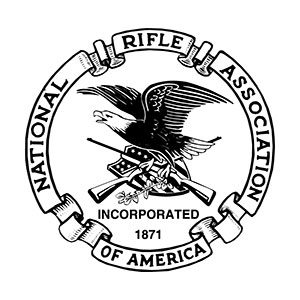
In layman’s terms: Gun rights groups are suing the ATF and Justice Department to end the 1934 National Firearms Act.
On August 1, a coalition of gun rights groups challenged the century-old National Firearms Act (NFA) that many consider to be the most significant infringement of Second Amendment rights in modern times.
Plaintiffs Chris Brown, Allen Mayville, and Prime Protection are joined by the National Rifle Association of America (NRA), Firearms Policy Coalition (FPC), Second Amendment Foundation (SAF), and American Suppressor Association. Brown v. ATF was filed in the United States District Court for the Eastern District of Missouri.
The suit also names as defendants Daniel P. Driscoll, in his official capacity as Acting Director of the ATF, the United States Department of Justice, and Pamela J. Bondi, in her official capacity as Attorney General of the United States.
This suit, and its timing, have massive significance for several reasons. The NFA, enacted in 1934, imposes unconstitutional taxes on civil liberties and registration requirements on certain firearms like machine guns, short-barreled rifles, and suppressors. It uses arbitrary and capricious criteria, such as barrel length, to regulate firearms, and effectively chills the ability to use hearing safety equipment under both regulation and taxation – something that even liberal European countries don’t do. In fact, this week, Guam, an unincorporated territory of the United States, legalized suppressors.
Also significant is the Executive Order that President Trump signed in February, directing Pam Bondi, the head of the Justice Department, to “…examine… executive departments and agencies to assess any ongoing infringements of the Second Amendment rights of our citizens, and present a proposed plan of action to the President.”
Just a few weeks ago, Congress passed the so-called “One Big Beautiful Bill” that removed the tax component of the NFA, but fell short of completely deregulating these items – a move that the Second Amendment community has strongly criticized. The new lawsuit may be the only effective way to challenge the NFA.
The lawsuit actually hinges on the congressional action that removed the tax:
This regulatory regime no longer comports with Congress’s Constitutionally enumerated powers. While the NFA’s regulations may have been permissible in support of the statute’s taxes on making and transferring firearms, that justification no longer remains for items whose making and transfer are no longer taxed. To the extent that the NFA imposes requirements on making, transferring, receiving, possessing, or otherwise using untaxed firearms, it cannot be justified as an exercise of any other Article I power. Accordingly, the NFA is unconstitutional as to the untaxed firearms.
Additionally, the suit challenges the legality of the NFA under the 2022 Bruen framework, which strikes at the heart of the restrictions, challenging what is in essence the portion of the Second Amendment that states, “shall not be infringed”:
Wholly apart from the NFA’s Constitutional infirmity in the above respect, the NFA’s remaining restrictions constitute an unconstitutional regulatory scheme as pertains to suppressors and short-barreled rifles under the Second Amendment. Under New York State Rifle & Pistol Association v. Bruen, 597 U.S. 1 (2022), the Second Amendment right to keep and bear arms presumptively protects the People’s right to keep and bear all arms. If an item qualifies as an “arm,” the Second Amendment applies to it, and the government bears the burden of proving, at the minimum, that there is a historical tradition of regulating arms to support the challenged regulatory scheme.
“The National Firearms Act has been a weight around the neck of law-abiding gun owners for nearly a century,” said Knox Williams, President and Executive Director of the American Suppressor Association, in a press release. “With the elimination of the excise tax on suppressors, short-barreled rifles, short-barreled shotguns, and AOWs through the One Big Beautiful Bill, our lawsuit challenges the NFA as an unconstitutional registry of now untaxed firearms. Common sense and the law are on our side, and we look forward to fighting on behalf of all Americans in Federal Court.”
“The National Firearms Act has infringed on law-abiding Americans’ right to keep and bear arms for nearly a century,” said John Commerford, Executive Director of the NRA Institute for Legislative Action. “Congress took a major step by eliminating the NFA tax on suppressors and short-barreled firearms through the OBBB, and we’re proud to work alongside other leading Second Amendment organizations to finish the job.”
Other major legal challenges have been brought against the NFA, without much avail. In the 1939 United States v. Miller case, the Supreme Court upheld the NFA, ruling that the Second Amendment protects only weapons with a reasonable relation to a well-regulated militia. Then again, in 1968, Haynes v. United States challenged the NFA’s registration requirements for felons, arguing they violated the Fifth Amendment’s protection against self-incrimination. The Supreme Court ruled in favor of the plaintiff, exempting felons from registration, but this did not invalidate the NFA as a whole.


















Both the NFA and the GCA are an offense to our Constitution, our ancestors, and the very concept of a free people.